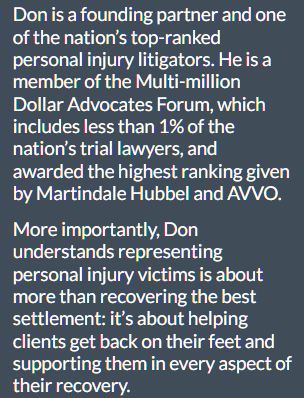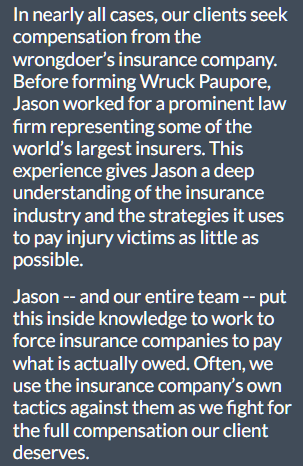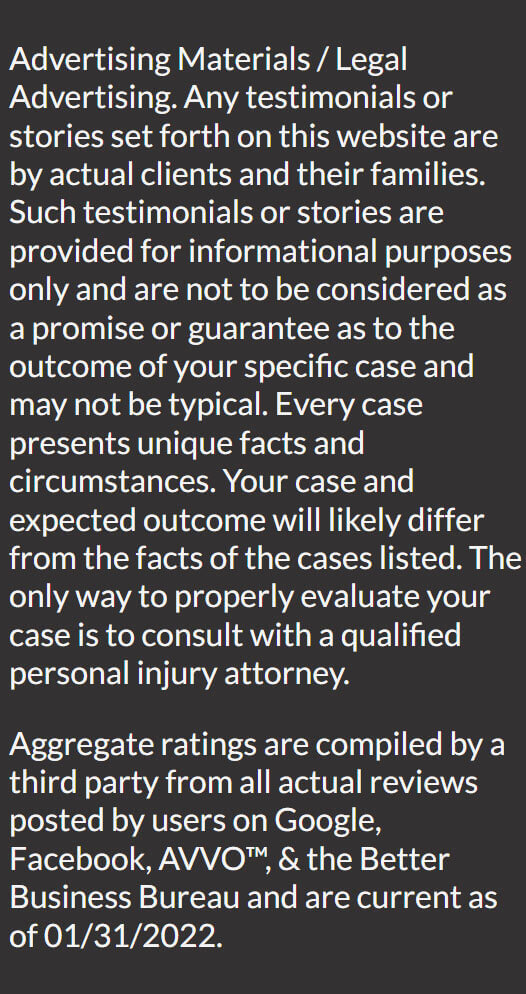




Nursing home residents experience abuse at high rates, and Indiana has a program of advocates for long-term care facility residents prepared to hear and address complaints about negligent facilities.
Indiana’s Long-Term Care (LTC) Ombudsman Program exists to protect nursing home residents, inform them of their rights, and help them advocate for those rights. With our lawyers’ help, victims of nursing home abuse or their loved ones may file complaints with the LTC Ombudsman Program online. This can initiate an investigation into a facility and further document a victim’s abuse. The investigation might result in documents and information our lawyers can refer to when building compensation claims and point us toward specific witnesses to interview to aid victims’ recoveries in Indiana. Reporting abuse to a certified ombudsperson may be the first step toward getting compensation, and we can help victims file complaints and inform the LTC Ombudsman Program of abuse immediately.
For a free and confidential case assessment from Wruck Paupore, call our Indiana nursing home abuse lawyers today at (219) 322-1166.
Indiana’s Long-Term Care Ombudsman Program advocates for the rights of nursing home residents and provides assistance if those rights are violated. Our lawyers can help residents contact certified ombudsmen to report abuse or neglect, which is often important before seeking compensatory damages from liable facilities.
Victims of nursing home abuse may report it directly to a certified long-term care ombudsman if they feel uncomfortable informing the facility or if previous reports have been ignored. Engaging with an ombudsman through Indiana’s program is free and confidential, provided individuals are residents of Indiana nursing homes or licensed assisted living facilities.
Ombudsmen can help nursing home residents and their families find safer facilities to move to following reports of abuse and facilitate family councils to address residents’ needs better and improve their quality of life, especially after experiencing abuse. Long-term care ombudsmen can also connect residents and their families to other resources for concerns about nursing home living and explain their rights as residents.
Indiana’s Long-Term Care Ombudsman Program is resident-directed, meaning ombudsmen only act in residents’ best interests according to their desires. Much like our Indianapolis nursing home abuse lawyers, long-term ombudsmen are residents’ advocates. That said, while ombudsmen are useful resources to nursing home residents, they are not law enforcement officials, nor do they gather and prepare evidence to help victims file compensation claims, which is why also contacting our attorneys is important after suffering nursing home abuse.
Suppose you or your loved one lives in a long-term care facility in Indiana and has concerns about their quality of life or safety, particularly due to neglect or abuse. In that case, you can file a complaint with the LTC Ombudsman Program in Indiana, kick-start an investigation into the matter, and document the situation.
Our lawyers can help you prepare and file a complaint online, whether you are a resident yourself or the loved one of a resident. In this complaint, our lawyers can include the name of the resident, the facility they are residing in, and the specific concerns about their quality of life, such as reports of abuse, including sexual, physical, financial, and psychological abuse. Information received by the LTC Ombudsman Program is confidential, and anyone who files a claim may remain anonymous, which is particularly important for some victims of abuse, at least initially.
The LTC Ombudsman Program typically responds to complaints within two to three business days, at which point ombudsmen may offer their support to the resident in need. After experiencing abuse, the resident may need to be moved to another nursing home, and the ombudsman assigned to the case can facilitate this. The complaint may prompt a deeper investigation into abuse out of concern for other residents’ safety, even if the resident does not return to the facility. This could benefit your complaint, even though the goal of the investigation will not be to gather evidence to prove liability but to resolve complaints according to the resident’s goals.
The complaint you file with the LTC Ombudsman Program will be separate from your compensation claim, which our lawyers will only bring after gathering sufficient evidence to show liability. Do not delay filing a complaint with the LTC Ombudsman Program if you have concerns about a loved one or have experienced nursing home abuse yourself.
When you file a complaint with the Long-Term Care Ombudsman Program in Indiana, those assigned to your case may investigate the matter, gathering witness statements and other information our lawyers may use when building the foundation of your compensation case.
Nursing homes must give the LTC Ombudsman Program access during its investigations, and our lawyers can review the resulting investigation reports to identify specific witnesses to interview or matters we should investigate further. Certain information collected by ombudsmen might be confidential, and our lawyers may have to get court orders to access it.
Our attorneys may be able to get general information about previous complaints filed against a specific facility with the Long-Term Care Ombudsman Program, showing a pattern of a nursing home facility allowing abuse or ignoring it.
We can quickly obtain all relevant information from Indiana’s Long-Term Care Ombudsman Program to see how it will affect a victim’s future compensation claim. Alongside this information, our lawyers may interview eyewitnesses, obtain medical reports, and get surveillance footage from the facility to strengthen a victim’s financial recovery.
For a free case review from Wruck Paupore, call our nursing home abuse lawyers at (219) 322-1166.
Don is a founding partner and one of the nation’s top-ranked personal injury litigators. He is a member of the Multi-million Dollar Advocates Forum, which includes less than 1% of the nation’s trial lawyers, and awarded the highest ranking given by Martindale Hubbel and AVVO.
More importantly, Don understands representing personal injury victims is about more than recovering the best settlement: it’s about helping clients get back on their feet and supporting them in every aspect of their recovery.

In nearly all cases, our clients seek compensation from the wrongdoer’s insurance company. Before forming Wruck Paupore, Jason worked for a prominent law firm representing some of the world’s largest insurers. This experience gives Jason a deep understanding of the insurance industry and the strategies it uses to pay injury victims as little as possible.
Jason -- and our entire team -- put this inside knowledge to work to force insurance companies to pay what is actually owed. Often, we use the insurance company’s own tactics against them as we fight for the full compensation our client deserves.

For more than four decades, Keith has been fighting for injury victims. During that time, he’s watched the insurance industry change, with insurers now more interested in protecting their stock price than treating injury victims fairly.
Since the beginning, Keith has put people first. From his childhood in Gary, Indiana during the 1960’s and working his way through law school, Keith has risen to become one of the Midwest’s most respected trial lawyers. He has never forgotten that being a lawyer is about helping people -- and seeing injury victims through struggles in a way that could change their lives forever.
Over the decades, Keith, Don and Jason have fought relentlessly for clients, even when other lawyers have said the case was impossible to win.


© 2025
Terms of Service | Privacy Policy | Resources | Blog | Sitemap

© 2022 Wruck Paupore PC
Terms of Service | Privacy Policy